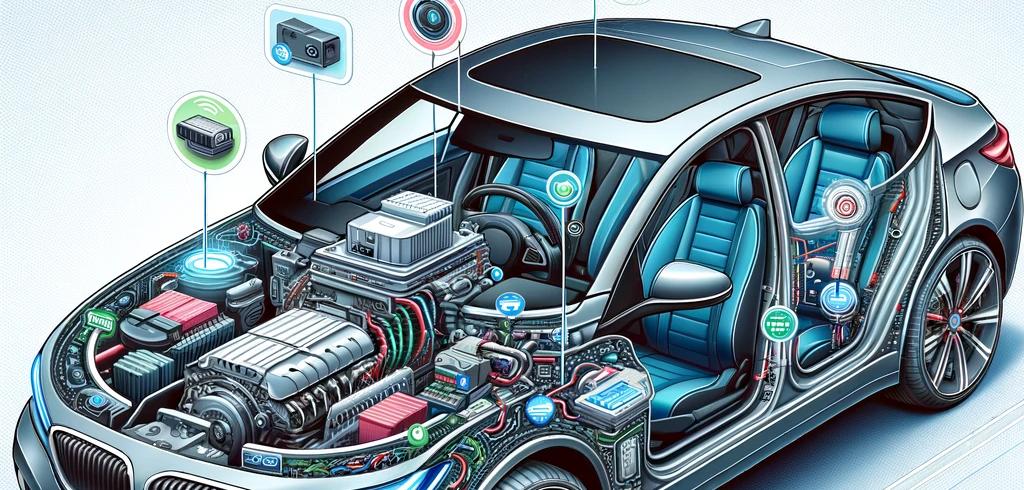
How does EDR works?
Endpoint detection and response (EDR) works by continuously monitoring and analyzing endpoint activity to detect and respond to security threats in real-time. Here is a high-level overview of how EDR works:
- Data Collection: EDR solutions collect and analyze data from endpoints, such as laptops, servers, and mobile devices, to gain visibility into endpoint activity. This data includes files, network connections, process execution, and other relevant information.
- Threat Detection: EDR solutions use a combination of machine learning, artificial intelligence, and signature-based analysis to detect and classify threats, such as malware, ransomware, and advanced persistent threats (APTs).
- Threat Response: EDR solutions provide automated response capabilities, such as isolating infected endpoints, quarantining malicious files, and blocking malicious network connections. EDR solutions also provide threat intelligence and actionable recommendations to help organizations respond to threats.
- Forensics and Investigation: EDR solutions provide detailed forensics and investigation capabilities, allowing organizations to understand the scope and impact of a security incident, and to track the movement of threats across the network.
- Reporting and Analytics: EDR solutions provide detailed reporting and analytics to help organizations understand the nature and frequency of security threats, and to make informed decisions about their security posture.
EDR solutions provide a comprehensive approach to endpoint security by collecting and analyzing data, detecting and responding to threats, conducting forensics and investigation, and providing reporting and analytics.
Some of available EDRs Providers
The best endpoint detection and response (EDR) solutions for the oil and gas industry depend on the specific needs and requirements of the organization. However, here are some popular EDR solutions that are commonly used in the oil and gas industry:
- Symantec Endpoint Protection: Symantec Endpoint Protection provides advanced threat protection for endpoints and servers, including real-time threat intelligence, behavior-based detection, and automated response.
- Carbon Black: Carbon Black offers a cloud-based EDR solution that provides real-time threat detection, continuous monitoring, and automated response.
- McAfee Endpoint Security: McAfee Endpoint Security provides advanced threat protection, including real-time detection, response, and remediation, as well as endpoint firewall and data protection.
- Trend Micro: Trend Micro provides an EDR solution that uses machine learning and artificial intelligence to detect and respond to advanced threats in real-time.
- Cisco Umbrella: Cisco Umbrella is a cloud-based EDR solution that provides advanced threat protection, including real-time threat intelligence, URL filtering, and cloud-delivered security.
- Dragos Platform: Dragos Platform provides advanced threat detection and response capabilities for ICS, including real-time threat intelligence, automated response, and detailed forensics and investigation.
- Claroty: Claroty provides a cloud-based EDR solution for ICS that provides real-time threat detection, continuous monitoring, and automated response.
- CyberX: CyberX provides an EDR solution for ICS that uses machine learning and artificial intelligence to detect and respond to threats in real-time, as well as to provide real-time visibility into ICS network activity.
- Nozomi Networks: Nozomi Networks provides an EDR solution for ICS that provides real-time visibility and threat detection, as well as automated response and remediation capabilities.
- FireEye Helix: FireEye Helix provides a cloud-based EDR solution for ICS that provides real-time threat intelligence, automated response, and detailed forensics and investigation.
Why EDR is Required in Industrial Control System?
Endpoint detection and response (EDR) is critical for industrial control systems (ICS) because it helps organizations detect and respond to security threats in real-time, reducing the risk of security incidents and data breaches. Here are some reasons why organizations need EDR in ICS:
- Protect against Advanced Threats: ICS environments are highly complex and susceptible to advanced threats, such as malware, ransomware, and advanced persistent threats (APTs). EDR provides real-time threat detection and response capabilities, reducing the risk of security incidents.
- Monitor Endpoint Activity: EDR solutions provide real-time visibility into endpoint activity, allowing organizations to monitor and detect suspicious activity, and to respond to security incidents in a timely manner.
- Automated Response: EDR solutions provide automated response capabilities, such as isolating infected endpoints, quarantining malicious files, and blocking malicious network connections. This helps organizations respond to threats quickly and effectively, reducing the risk of damage.
- Forensics and Investigation: EDR solutions provide detailed forensics and investigation capabilities, allowing organizations to understand the scope and impact of a security incident, and to track the movement of threats across the network.
- Compliance: ICS environments are subject to strict regulatory and compliance requirements, such as NIST 800-82. EDR solutions help organizations comply with these requirements by providing real-time visibility, threat detection, and response capabilities.
In conclusion, EDR is critical for ICS because it helps organizations detect and respond to security threats in real-time, reducing the risk of security incidents and data breaches. EDR solutions provide real-time visibility, threat detection, automated response, forensics and investigation, and compliance capabilities, making them essential for protecting ICS environments from security threats.



